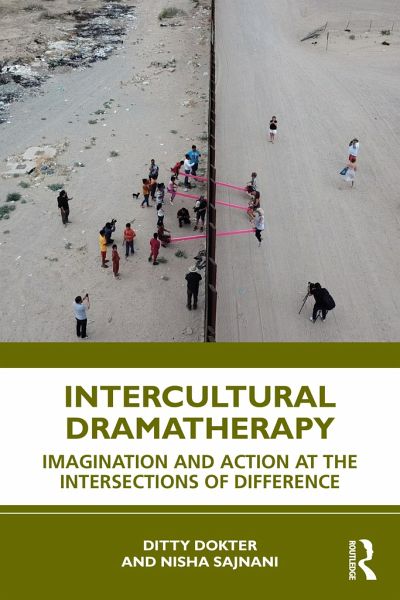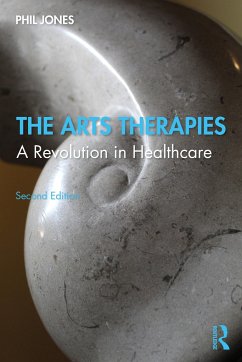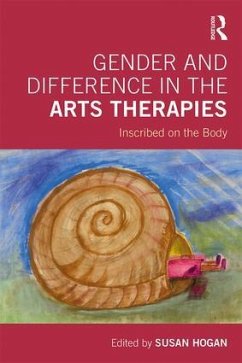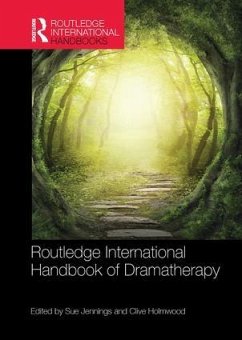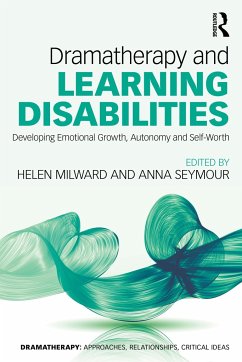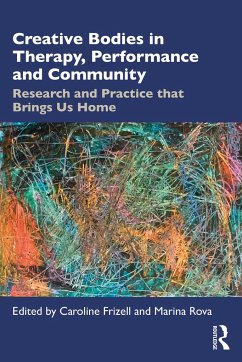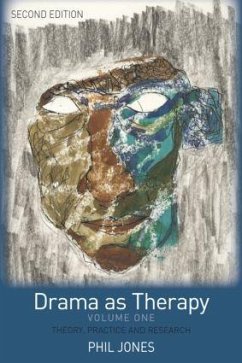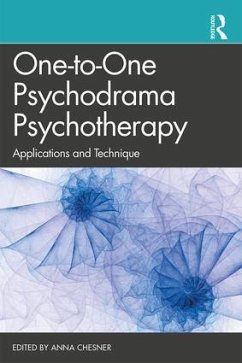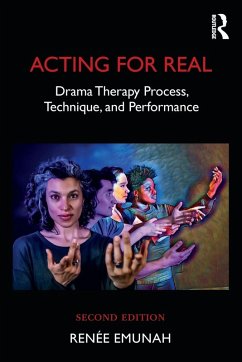"My black body cannot be unseen. It is ever-present. Like all bodies. With nuance and a kind of magic. As dramatherapists, we are concerned with whole body experience and attunement. It has never been more important than 'here and now', for us to learn how to navigate the uncomfortable terrain of institutions, intersectionality, and individual difference. This book springs from the well of Dokter's and Sajnani's deep listening, learning, and restorative action and practice, for 'all' bodies." - Samantha E. Adams, British Dramatherapist & Lecturer, University of Roehampton, London, UK
"The field of Dramatherapy has long awaited this book, an artistry of cultural responsiveness and candour, Sajnani and Dokter reveal "both
the strengths and shadows of dramatherapy heritage." Situating Dramatherapy within the various sociopolitical contexts in which we live and work, this research illuminates how Dramatherapy can attend to structural oppression and colonization within clinical spaces, affirm cultural identities and work towards disrupting the systematic devaluing and erasure of the experiences and cultural values of minoritized people. A unique treasure and a must-read for all Dramatherapy students and seasoned professionals, it is books like these that make our profession a better place." - Jessica Bleuer, PhD(c), RDT,
Graduate Program Director, MA Drama Therapy, Concordia University, Montreal, Canada & Past Diversity Chair, North American Drama Therapy Association"A timely book that will surely stimulate essential dialogue and self-examination in our field. The book is beautifully inclusive - in its exploration of many facets of identity (race, gender, age, language, sexual orientation, religion, class, nationality, and ability), and in bringing together perspectives from the North American Drama Therapy Association and the British Association of Dramatherapists, along with vignettes from drama therapists and clients around the globe. Written in a thoughtful, accessible, and inviting manner, Intercultural Dramatherapy inspires cultural reflection, humility, skill, and expanded awareness and action - for practitioners and supervisors - especially in relation to working across difference." - Renée Emunah, PhD, RDT-BCT,
Founder/Director, Drama Therapy Program at the California Institute of Integral Studies"An essential text for students, practitioners and teachers of dramatherapy. This book offers both a theoretical orientation and practical starting points for the inter-cultural practice of dramatherapy. It is written with reflexivity and rigour and draws on consultations with drama therapists across the world. While the book is aimed at those based in the UK and USA, insights are adaptable to other contexts. The chapter on decolonising dramatherapy is particularly relevant to those interested in working in the global south responsibly and ethically." - Maitri Gopalakrishna,
Dramatherapist, Counselling Psychologist and Trainer Parivarthan Counselling Training and Research Centre, Bangalore, India"The authors share their own lived experiences of inequality, attending then to disparity that can occur in dramatherapy practice more generally. They encourage co-creation, listening to client voices and signs of their internalised oppression in a broadly white and privileged profession. Both writers model activism and cultural humility, addressing attitudes towards dis/ability, racism, ageism, homophobia and further biases which promote othering. Professional and student readers will gain self-awareness through selected vignettes from practitioners and clients combined with skilful questioning as chapters end. The authors subtly guide the reader, enabling silenced voices to be heard and curricula to be re-focused. A brilliant and timely book." - Joanna Jaaniste, PhD,
Adjunct Fellow, Western Sydney University, Australia"An amazing book showing how dramatherapy practitioners cross their geo-political boundaries, integrating, and internalizing Other cultures, placing dramatherapy in an intercultural domain. The current complex global scenario of migration, wars, poverty, and marginalization, makes this a
must read text, for all mental health professionals. This book contains rich descriptions regarding the benefits of dramatherapy practice within culturally diverse settings, enabling to view each individual and the human society as
Pluralist." - Ravindra Ranasinha PhD,
Director, Research Centre for Dramatherapy, Colombo, Sri Lanka "This is an excellent book and essential reading for dramatherapists and students who care about intercultural perspective communication in relation to dramatherapy theory and practice, including supervision and training. Invisible something has a voice!" - Tae-Seung Lee, PhD,
Lecturer MA Drama Therapy, Yong-in University, South Korea"This book is a vast and thoughtful resource that explores and grapples with experiences and complexities of intercultural dramatherapy. Drawing from case studies, interviews, personal communications, literature, personal and professional narratives, it covers a range of intersectional considerations and perspectives regarding dramatherapy training, practice, and supervision. Each chapter offers the reader a relevant set of questions that prompt contemplation and self-reflection at the intersection of positionality and perspective. Dokter and Sajnani have written an important text for dramatherapy students and seasoned clinicians alike." - Britton Williams,
Adjunct Professor, Program in Drama Therapy, New York University, USA"This book establishes for the reader salient concepts and praxis in cross-cultural/intercultural dramatherapy. The clear structure of the chapters, the balance of the findings from the research study in conversation with practitioner interviews and current research and writing in the profession, makes a thick and complex topic accessible. The book also demonstrates where the gaps are in the current literature, in our ever-changing world, and where more work and research needs to be focused. It will be an outstanding textbook for teaching and for dramatherapists who wish to develop their capacities in centering difference in their work, as it thoughtfully reminds us that all clinical practice may indeed be intercultural work." - Maria Hodermarska, MA, RDT-BCT, CASAC, LCAT,
Clinical Associate Professor of Drama Therapy, New York University, USA"Simultaneously personal and political, this publication draws out the urgency of transcultural understanding in dramatherapy training and practice. Vignettes are accompanied by scholarly comment, addressing problems of inequality, intransigence, and implicit codes in training and clinical contexts. There is disruption to dramatherapy tropes and challenges to orthodoxy. It is an exciting and vital read and one which prompts reflection and action - both in ourselves and our communities. This is a core text for dramatherapists, arts therapists, educators and professionals interested in the shadows and strengths of their practice." - Richard Hougham,
MA Principal Lecturer, Royal Central School of Speech and Drama, University of London, UK"'What is foregrounded, made visible in dramatherapy, theory and practice and what remains invisible?'. This question posed in the introduction, supports the reader in making sense of the complexities of power dynamics and the intersections of identity and how these may play out in the therapy space. True to its title, 'imagination and action' are at its heart, offering creative approaches and practical ideas to explore content so painful that it can easily be pushed aside. This book honours the voices and multiple perspectives of a range of professionals and their clients, exploring ways in which the power dynamics of race and racism, age and ageism and social class for instance, can manifest in the therapy room. It will help practitioners and clients create safer ways of initiating important conversations which may otherwise have been avoided. The book, strengthened by the North American and European perspectives of the authors, will serve as a much needed guide and practical tool for therapy clients, arts therapists, psychotherapists, trainers and clinical supervisors." - Mandy Carr,
former Dramatherapy senior lecturer, Anglia Ruskin University, Cambridge, UK and former convenor of the Equality and Diversity Sub-Committee, British Association of Dramatherapists